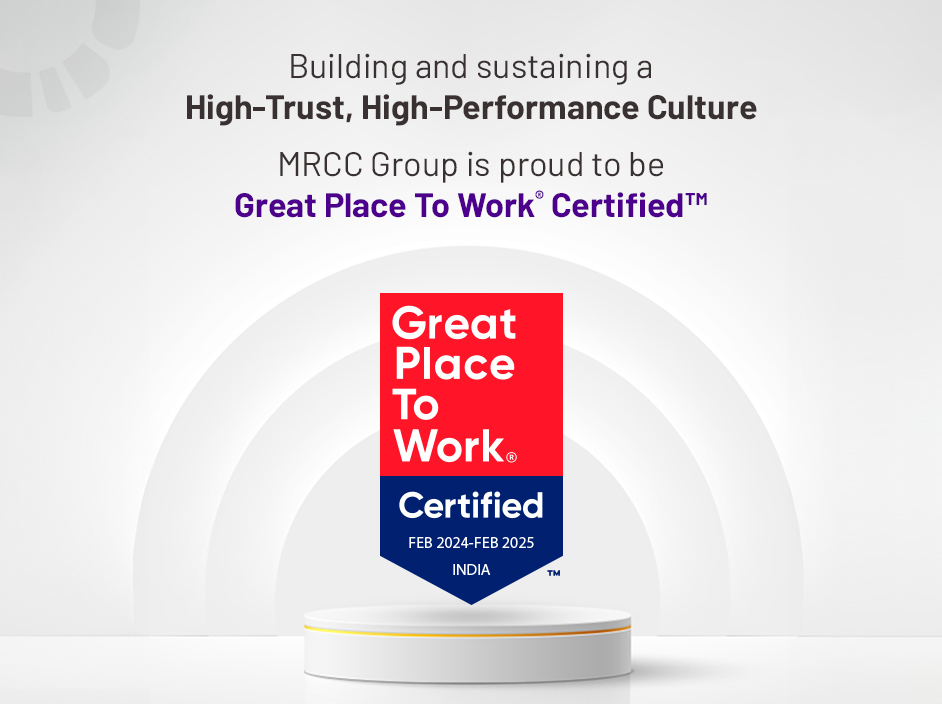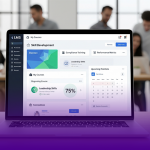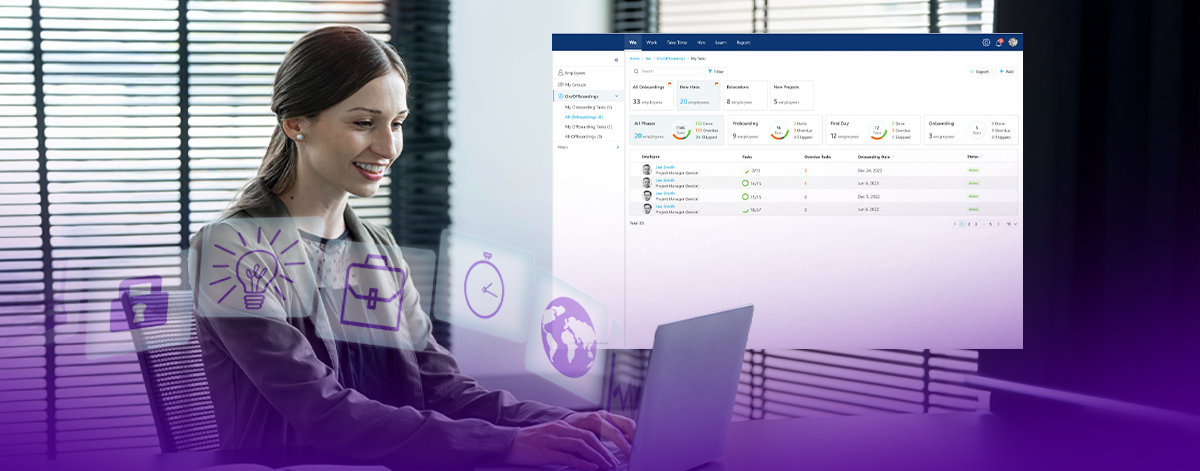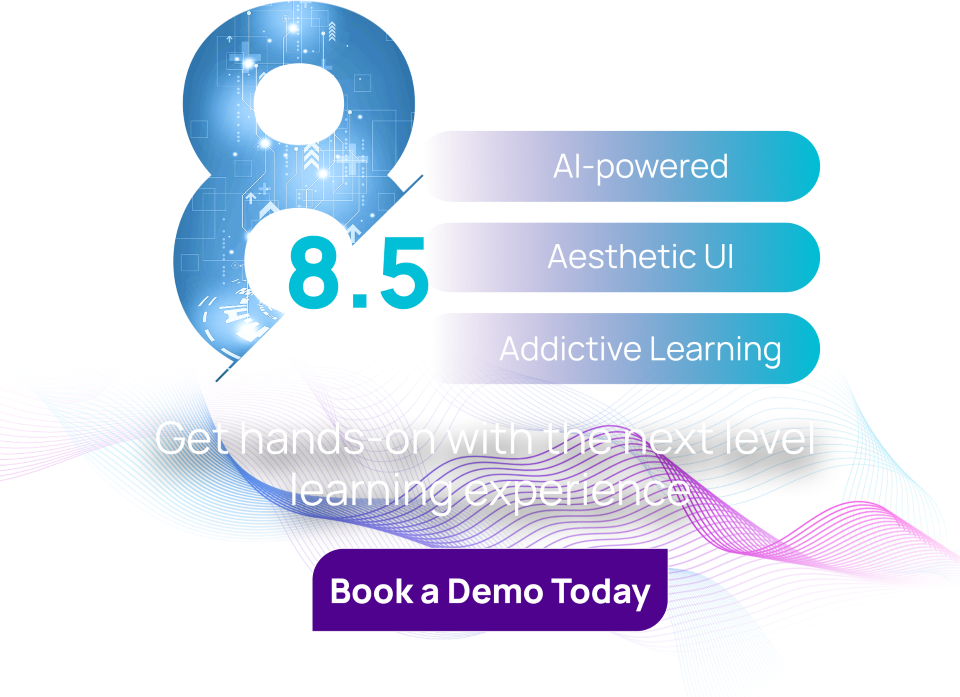
MRCC Group is Now Great Place To Work® Certified
March 5, 2024
A Corporate LMS for Employee Training and Development
October 10, 2025In 2025, Learning Management Systems (LMS) evolved into essential technology solutions that empower organizations to transform the way they deliver training, manage learning processes, and develop talent at scale.
As companies face increasing demands for agile workforce development, personalized learning experiences, and measurable performance outcomes, LMS platforms have emerged as powerful tools to meet these challenges. Today’s LMS solutions go far beyond simply hosting courses; they integrate advanced analytics, automation, content management, and AI-driven personalization to deliver impactful learning journeys that align with business goals.
Choosing the right LMS platform is more critical than ever. Organizations are navigating an increasing ecosystem of options, each promising unique features, integrations, and pricing. A well-suited LMS can improve training efficiency, boost learner engagement, ensure compliance with industry regulations, and provide deep insights into skills development across the organization.
This guide offers an in-depth exploration of the top LMS platforms in 2025, analyzing their core features, business benefits, and the specific use cases for which they’re best suited. Whether you’re focused on corporate compliance, leadership development, or customer education, understanding these platforms will help you make a strategic decision that supports your long-term growth.
What Are LMS Platforms?
Learning Management Systems (LMS) are sophisticated software applications designed to manage every aspect of the learning process. At their core, they provide a centralized digital environment where organizations can create, deliver, track, and report on educational content and training programs.
Rather than relying on fragmented tools or manual processes, LMS platforms consolidate these functions, offering a seamless experience for administrators, instructors, and learners alike.
For administrators, LMS platforms simplify the process of designing training programs by offering intuitive course authoring tools, pre-built templates, and automated workflows. Employee development courses can include a variety of content formats, videos, quizzes, interactive modules, documents, and SCORM-compliant files, allowing for rich, engaging learning experiences. Once created, these courses can be easily assigned to employees, partners, and customers based on their role, skill gaps, or certification requirements.
A key function of LMS platforms is learner progress tracking. Administrators can monitor course completion rates, assessment scores, time spent on modules, and overall learner engagement in real time. This data-driven approach enables the identification of knowledge gaps, the adjustment of course material, and the dynamic improvement of the learning path.
Corporate training platforms are indispensable for several critical applications:
- Employee Onboarding: New hires can complete standardized training modules, ensuring they understand company policies, tools, and culture before they begin work.
- Compliance Training: Businesses operating in regulated industries (e.g., finance, healthcare, manufacturing) can rely on LMS platforms to deliver mandatory training and maintain records of certification compliance.
- Continuous Professional Development (CPD): As industries evolve, upskilling employees with new knowledge and capabilities becomes essential. LMS platforms can facilitate ongoing training programs tailored to individual learning paths, promoting a culture of continuous learning and adaptability.
Moreover, modern corporate training platforms are equipped with social learning features that promote collaboration, discussion forums, and peer-to-peer knowledge sharing, contributing to a more engaging learning experience. Integration capabilities with HR systems, performance management tools, and communication platforms further extend their power, enabling learning to be seamlessly woven into daily workflows.
Best Learning Management Systems of 2025
- Docebo
Docebo stands out as an AI-powered LMS that offers personalized learning experiences. Its advanced analytics and machine learning capabilities enable organizations to deliver tailored training content, enhancing learner engagement and retention. The platform's scalability makes it suitable for enterprises of all sizes.
- TalentLMS
Recognized for its user-friendly interface, TalentLMS is a cloud-based platform that simplifies the creation and management of training programs. It supports various content formats including SCORM and offers robust reporting tools to track learner progress. Its affordability makes it an attractive option for small to medium-sized businesses.
- Absorb LMS
Absorb LMS is known for its scalability and flexibility, making it suitable for organizations of all sizes. It provides a range of features including mobile learning, gamification, and social learning tools to foster an engaging learning environment. The platform's intuitive interface ensures ease of use for both administrators and learners.
- Moodle
Moodle is an open-source LMS that offers extensive customization options. It’s widely used in educational institutions and is gaining traction in corporate settings due to its flexibility and cost-effectiveness. Its active community contributes to continuous improvements and support.
- 360Learning
360Learning emphasizes collaborative learning by enabling peer-to-peer interactions and the co-creation of content. Its social learning features promote knowledge sharing and community building among learners. The platform's focus on collaboration makes it ideal for organizations seeking to foster a culture of continuous learning.
- Tenneo – AI-Powered LMS
Tenneo LMS takes a next-generation approach by embedding artificial intelligence throughout its platform. Tenneo automates administrative tasks and also provides intelligent learning recommendations, skill-gap analyses, and performance-aligned course pathways. Its integration with business systems allows real-time skill tracking and adaptive learning paths, turning training into a strategic lever for productivity and innovation. Tenneo supports interactive content formats, immersive simulations, and collaborative learning features that engage employees, accelerate skill acquisition, and improve knowledge retention.
LMS Reviews: What Users Are Saying
When choosing the best learning management systems, hearing from real users can be incredibly helpful. Let’s take a look at what people are saying about some of the top LMS platforms in 2025:
- They love how AI-powered personalization makes learning more innovative and relevant, helping employees stay engaged with content that truly fits their needs.
- Many appreciate the easy setup and user-friendly design, especially when IT support is limited, making it simple to get started right away.
- The ability to learn on the go with mobile-friendly, scalable platforms is a big plus, giving employees the freedom to access training anytime, anywhere.
- While many users praise the deep customization options, a few do mention that it can take a bit more effort for admins to set things up to enjoy the flexibility these best LMS’s offer.
- Collaborative features like discussion boards and peer-driven content are celebrated for creating a supportive, community-driven learning environment.
Overall, these LMS reviews highlight real-world experiences of how a good LMS doesn’t just manage learning but also makes learning intuitive, engaging, and aligned with the way people work today.
Choosing the Right LMS for Your Organization
Selecting the appropriate LMS depends on various factors including organizational size, training objectives, and budget. Consider the following when evaluating LMS platforms:
- Scalability: Ensure the LMS can accommodate your organization's growth and evolving training needs.
- Customization: Look for platforms that offer customization options to tailor the learning experience to your organization's requirements.
- Integration: Choose an LMS that integrates seamlessly with your existing systems, such as HR software and performance management tools.
- User Experience: Opt for platforms with intuitive interfaces to facilitate easy adoption by both administrators and learners.
- Support and Training: Evaluate the level of customer support and training resources provided by the LMS vendor.
The landscape of LMS platforms in 2025 offers a diverse array of options that cater to the varying needs of organizations. Whether you're seeking a robust corporate training solution or an educational platform with extensive customization capabilities, there's an LMS designed to meet your requirements.
By carefully assessing your organization's needs and aligning them with the features offered by various LMS platforms, you can make an informed decision that enhances learning outcomes and drives your organizational success.
Why Tenneo Stands Out as the Best LMS Platform
When choosing an LMS platform, decision-makers must prioritize how the range of features aligns with organizational goals, particularly in terms of skill development, agility, and measurable business impact.
Tenneo LMS distinguishes itself by embedding AI at the core of the platform. This intelligent automation eliminates administrative overhead while providing actionable insights into learning effectiveness and performance outcomes. The system dynamically adapts to individual learning paths, making every course highly relevant to the learner’s role and growth trajectory.
Additionally, Tenneo’s robust integration with HR systems ensures that learning isn’t siloed but that it becomes a continuous, data-driven process tied directly to talent management and performance reviews. With interactive simulations, real-world scenario-based learning, and gamification, Tenneo keeps learners engaged and invested.
If your organization aims to move beyond static, compliance-focused training toward a future where learning fuels real business growth, Tenneo is the clear choice.
Contact Tenneo experts today to transform workforce development from a checkbox activity into a strategic capability.





